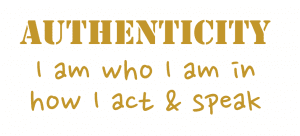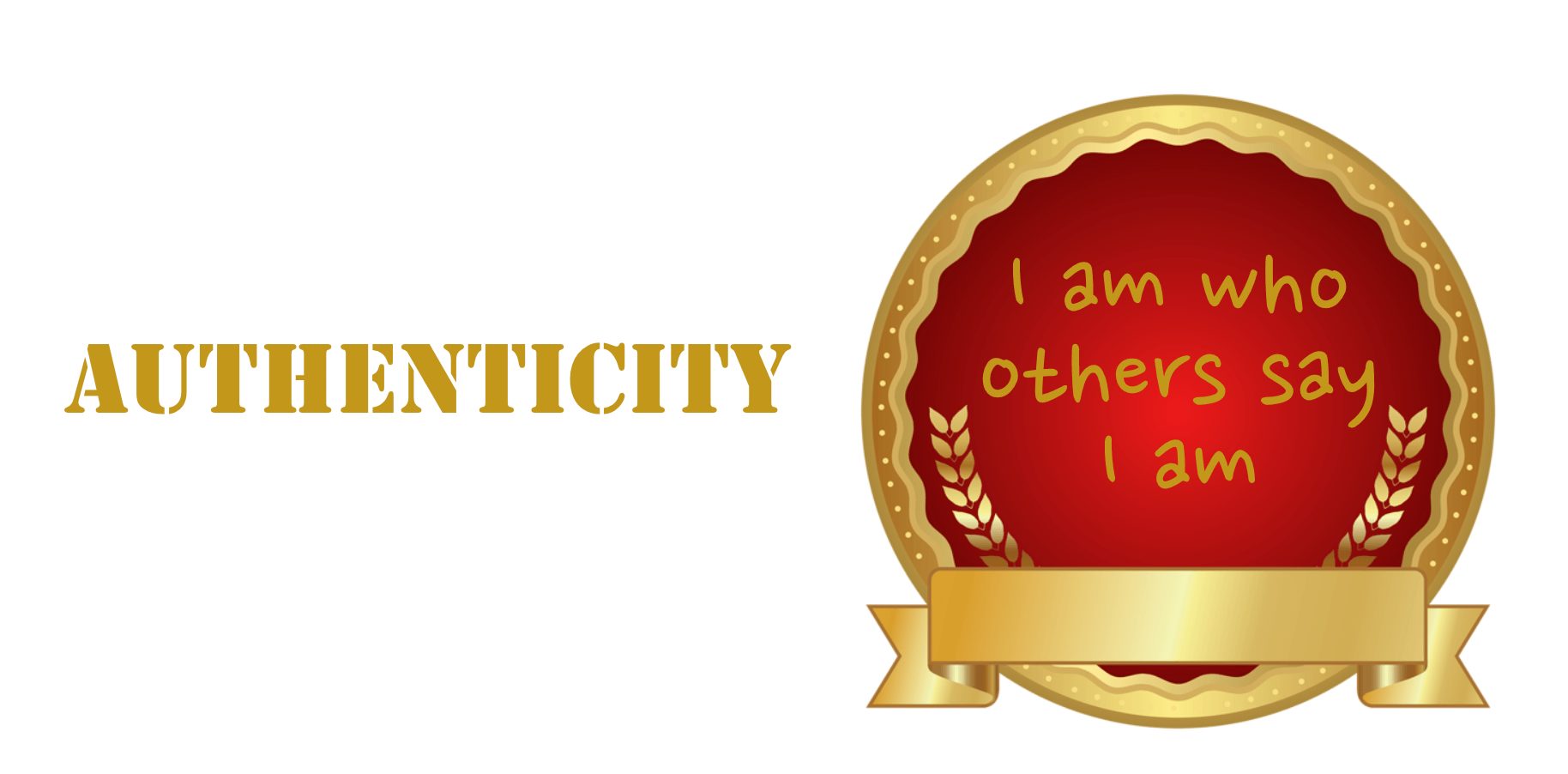Many are the brand consultants, agencies and marketing articles that talk about the importance of a brand’s authenticity. Why is authenticity so à la mode, you might ask? I put it down to three factors:
- Marketing (as a function) and advertising (as a practice) have tarnished and untrustworthy reputations.
- The Internet has enabled a greater transparency of what is going on “inside” a company.
- People are looking for a great sense of purpose and meaningfulness, to which brands and the companies for whom they may be working absolutely contribute.
At its heart, authenticity is ineluctably linked to the notion of trustworthiness. You are what you say you are. You do what you say you’ll do. The highest badge, though, is when others declare that of you. If your brand doesn’t have authenticity, you probably know it. However, if you say you’re authentic, then chances are, you probably aren’t. To be authentic, first, you need to know who you are. As a brand (not to mention as a person), that is not an easy thing to do.
Authentic Brand Values – Writing On The Wall

Many brands hire consultancies or agencies to come up with the holy grail sentence that defines the vision and/or mission of the brand with its accompanying values. But, if you have to write it down on the walls of the entrance, some might say that it’s probably not true. I, for one, however, am convinced that the exercise of getting that sentence fixed and affixed to the wall an appropriate one for any organisation, big or small. More than anything, the collective exercise of putting the words down on paper can be salutary and unifying.
Authentic As A Person versus A Brand

`
If we use authenticity as a term for a brand, we are typically attributing human characteristics. Etymologically speaking, going back to its Greek roots, an authentic person is “one acting on one’s own authority.” (source) The distinction is important because it underlies one of my central tenets for branding, inscribed in the tagline: Branding Gets Personal. A real brand lives and breathes…through its people and its users (customers). Then, what makes the difference between an authentic person and an authentic brand? While there are many similarities, I have identified two important distinctions.
- An authentic person can have a negative personality (be ugly, nasty, overly honest) and survive (albeit probably with a less robust set of friends)… However, an authentic brand needs to be perceived positively in order to survive Share on X The authentic characteristics should be appreciated to be successful long-term. And that appreciation starts with the brand’s own employees.
- A person may be authentic without ambition, but to the extent that all brands need to grow, their authenticity must incorporate their forward path. How a brand plans to increase sales must be congruent with its authentic self. Thus, an authentic brand must include its ambition as part of its authenticity. Share on X
The challenge with a brand’s authenticity is that it is not something you can control. What fundamentally counts is how others (clients and stakeholders) perceive you.
Drilling Authenticity
The real trick comes in having that authenticity radiate and resonate throughout the organisation. To begin with, authenticity is not an objective nor a destination. It’s is a journey and a mindset. And it’s anything but obvious or easy to achieve. Here are, in my opinion, some of the keys to making your brand become (more) authentic.
- Establish who you are. A good way to start is to review honestly the way you operate. As the 18th century Prussian philosopher Johann Gottfried von Herder claimed, authenticity is a measure of our existence whereby our identity is based on experiences, how we act (and speak). Thus, for a brand in search of its authentic self, look at the language, behaviors, codes and rituals that the organisation has. Is there consistency in the way the inside of the organisation functions with the way that the brand deals with customers?
- The means to the end count. Correlate how the future ambition (e.g. the mission) will be congruent with the core values of the brand. The means toward that end become entirely relevant for an authentic brand. Share on X
- Lead from the top. To the extent authenticity is about one’s actions and experiences, the only way an organisation can hope to achieve authenticity is when the senior team models the desired behavior. When the company is run by the founder, this is more often done naturally. However, in ongoing concerns that are run by more mercenary CEOs, the personification of the brand becomes much trickier, especially in companies with multiple brands to manage.
Authenticity is not for all brands. And that’s why it can be a substantive and substantial competitive advantage. But one can never rest on one’s laurels, especially as leadership teams transition and the tempestuous challenges of business test the organisation’s inner mettle.
Happy to hear your commentary!











